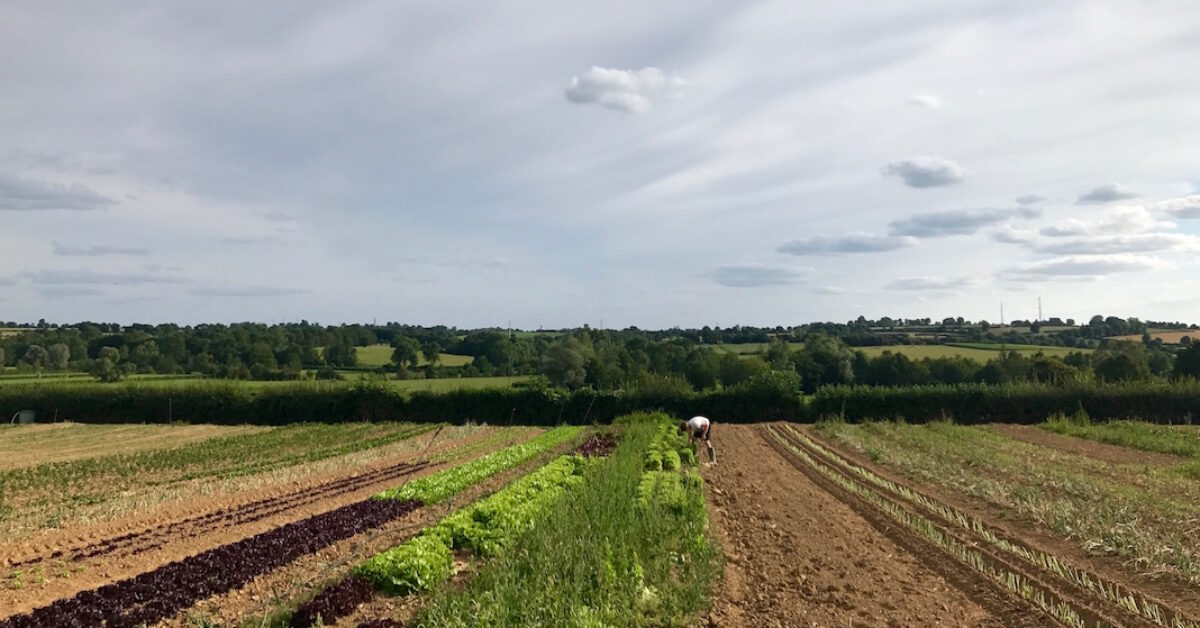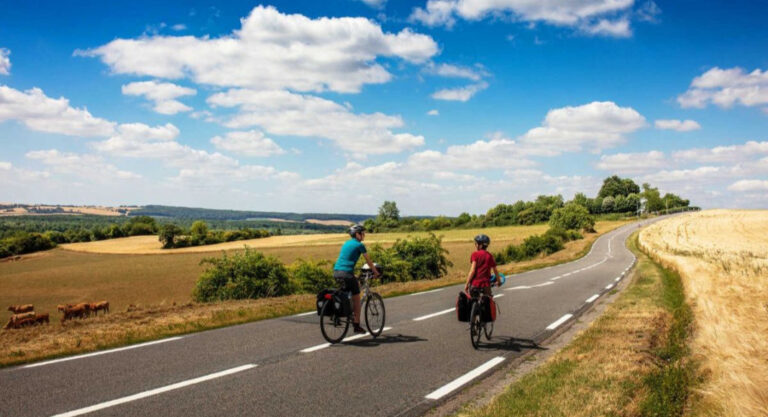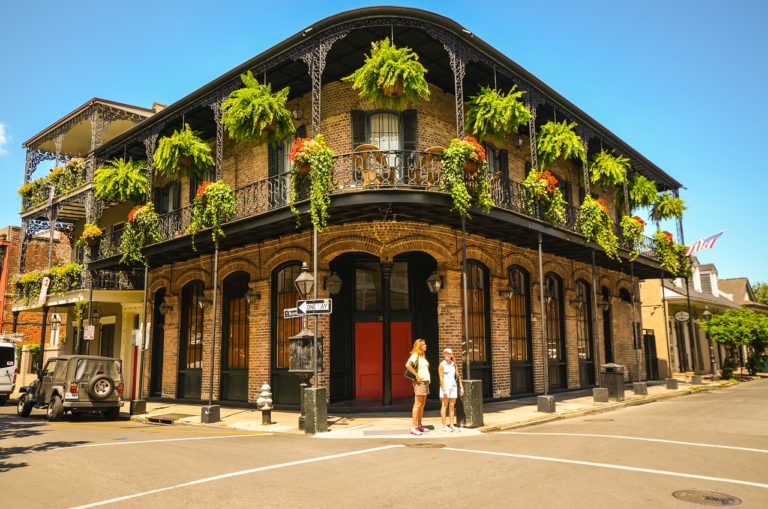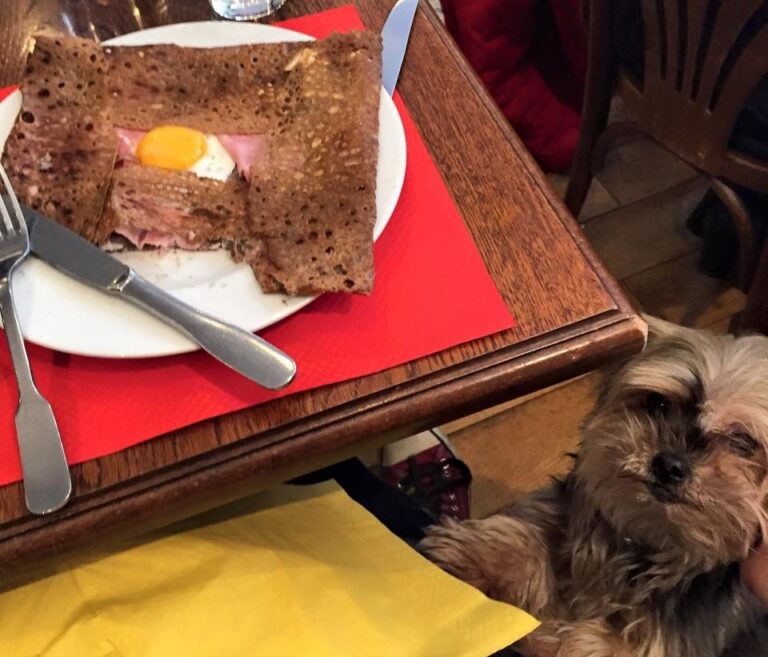You may have never pictured yourself working on a farm in France. I certainly didn’t — until I heard about WWOOF.
If you’re not familiar with the term, WWOOF stands for World Wide Opportunities on Organic Farms. Basically, it’s an organization that facilitates free homestays on organic farms. In exchange for getting meals and a place to stay, you work on the farm. To become a WWOOFer, you need to pay a one-time membership fee (25€). Once you register as a member, you’ll be able to browse the host list, which includes pictures and descriptions of the farms posted by the hosts. The hosts list how long they’re interested in having WWOOFers stay with them, ranging from less than one week to over a month. When you find one that interests you, you can go ahead and reach out to the host to find out more information and work out the details.
So, why do people want to voluntarily work on farms? Here’s why I encourage everyone to go out and WWOOF, based on my incredible experience working on a vegetable farm in northern France.
You’ll find that there’s much more to France than just Paris

I, too, was guilty of not wanting to leave the City of Lights along with les restos and les mecs… but to really gain a comprehensive view of France, you’ve got to step out of Paris. Before I arrived on the farm, I had no idea what the French countryside looked like. I was taken aback by the beauty of the mountains, valleys, and miles of open space. You’ll realize that France is so much more than one city.
You’ll be forced to use your French

In Paris, you can get by without speaking a word of French. Sure, you might get a dirty look from a cashier, but you’ll most likely be understood. But in the countryside, this might not be the case. The family I stayed with didn’t speak a word of English, which made French the only viable way to communicate. When you truly don’t have the option to fall back on English, you’ll be amazed at how fast you can improve.
When you can’t communicate in the way you’re used to, you’re forced to get creative. If I didn’t know how to say a word, I would have to describe it, and if that didn’t work, I’d act it out (to the amusement of everyone) until they knew what I was babbling about. One time, I was trying to say “Farmers grow a lot of corn where I live,” (shoutout the Midwest) but didn’t know the word for corn. The conversation went a little something like this:
“Uhh… je sais pas le mot mais c’est jaune… et longue…”
They answered by cocking their head to the side. In response to their confusion, I lifted an invisible cob of corn to my mouth and started chomping down.
“Oh! Maïs!”
Although these methods got exhausting at times, it pushed me even harder to learn the language so that we could understand each other more easily. It’s a humbling experience to literally not have the words to express yourself.
You’ll think about food differently

When I was in Paris, I ate carbs on carbs on carbs. At the farm, we would eat fresh meat and organic fruit and vegetables that were grown there. It tasted even better knowing that I had gotten my hands dirty and played a role in farm to plate process. Working with vegetables made me aware of the long, complicated process that takes place before produce even reaches the grocery store aisles. The farmers also taught me how to use every part of a vegetable so that nothing would go to waste. Now that I know how much labor goes into picking potatoes or harvesting eggplants, I no longer waste food as frequently as I used to. You’ll leave the farm with a newfound respect for farmers and the work that they do, as well as the food that you eat.
You’ll expand your vocabulary

If you’re like me and disregarded the farm unit in your 6th grade French class (because that unit would never be relevant), you’ll be confronted with a lot of unfamiliar, obscure vocabulary. While this might be intimidating at first, you’ll pick it up quickly because you’re likely to be using the same words often. The word for a bucket? Un seau. For plow? Une charrue. To weed? Désherber. (I got all too familiar with that one.)
You can travel to other cities

Many people WWOOF in places that are close to public transportation so they can travel to different cities on the weekends. I WWOOFed in a remote area that was pretty far from a train station, but I was still able to travel to Lille to work at the farmers market, as well as Brussels, Belgium. In my free time, I explored the small-town near the farm and the countryside, which allowed me to experience France in a way most travelers wouldn’t be able to if they’d just visited the big cities. WWOOFing gives you a chance to see how French people really live — sans touristes.
You’ll find une petite famille française

The WWOOFing experience can be so much more than just a lodging arrangement if you want it to be. Some farms offer separate housing for guests, but in my case, I was living in the house right alongside the family. When we weren’t working, we spent lots of time together eating meals, biking, and fishing. You’ll find that the people hosting you are as eager to get to know you as you are to get to know them. When you first arrive at the farm, you’re strangers, but when you leave, you’re une famille.






